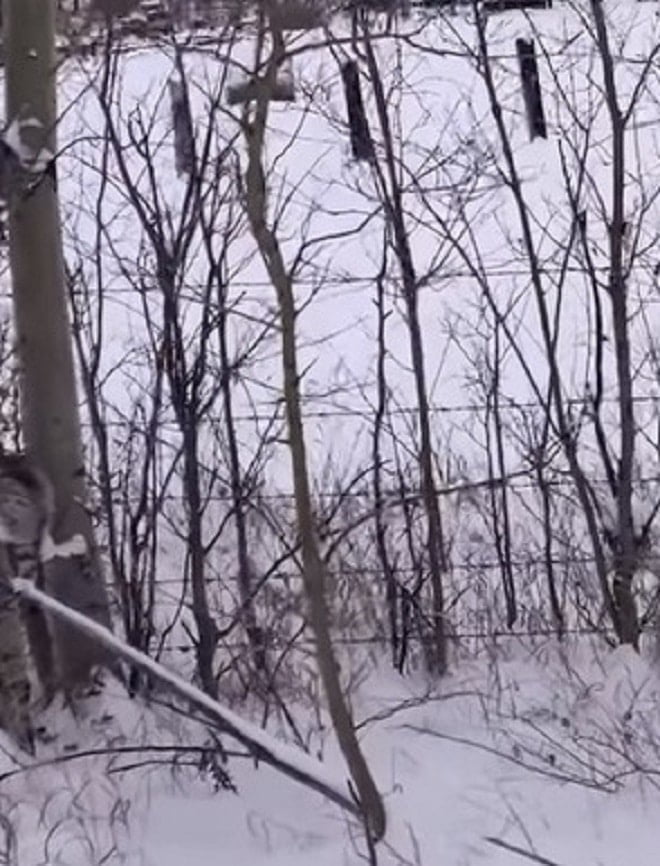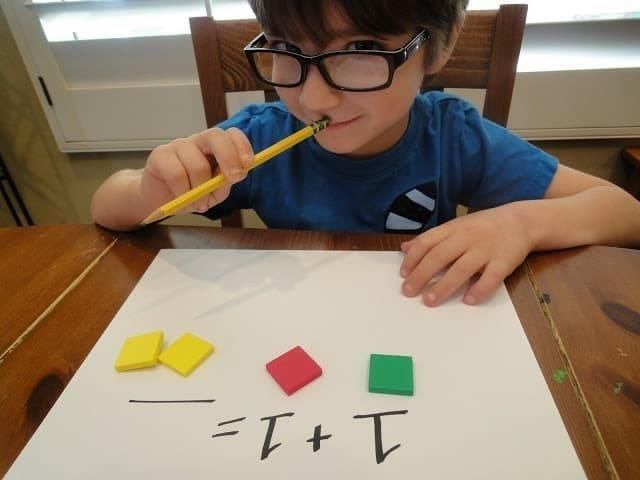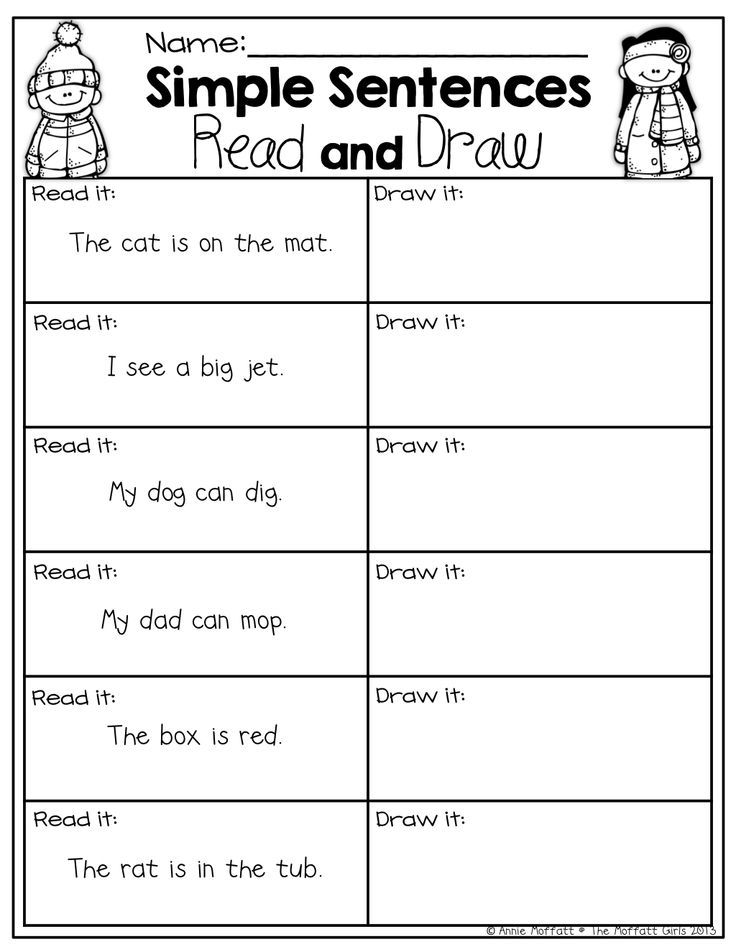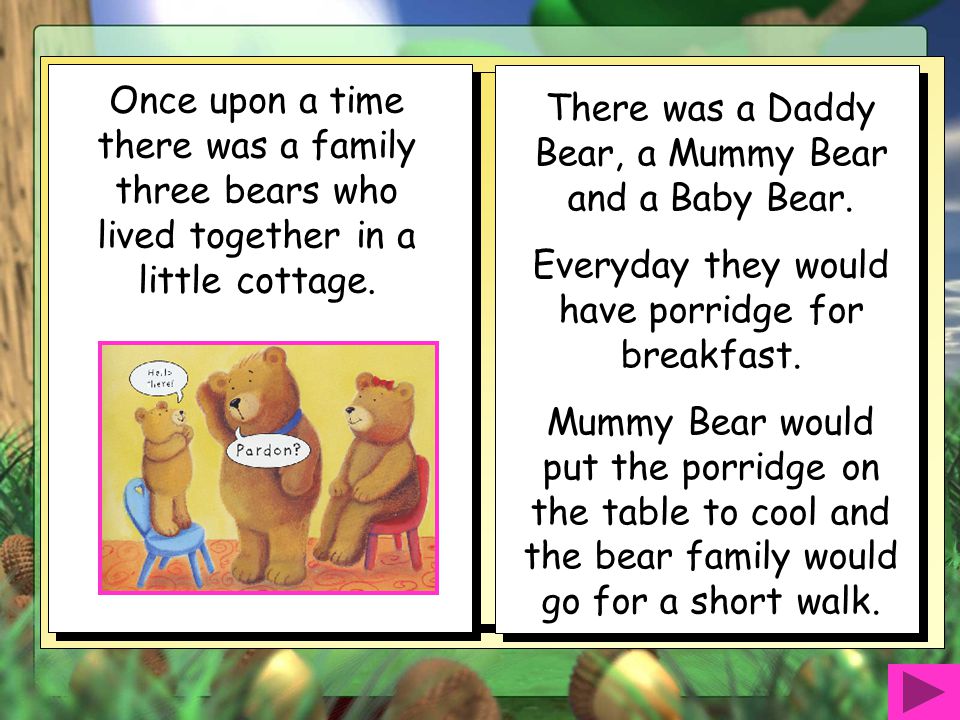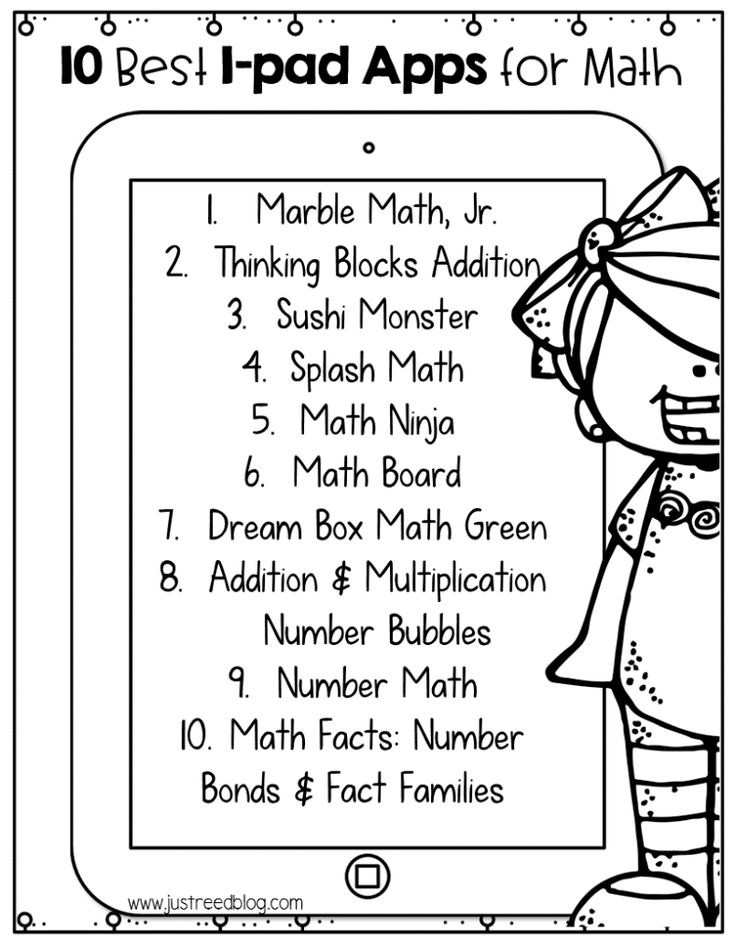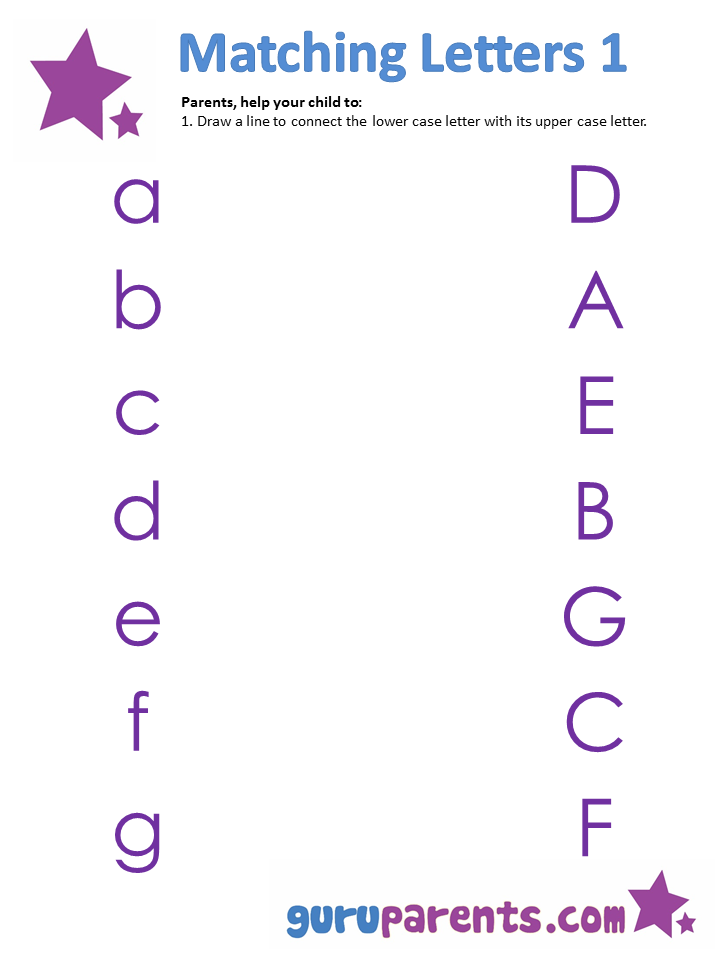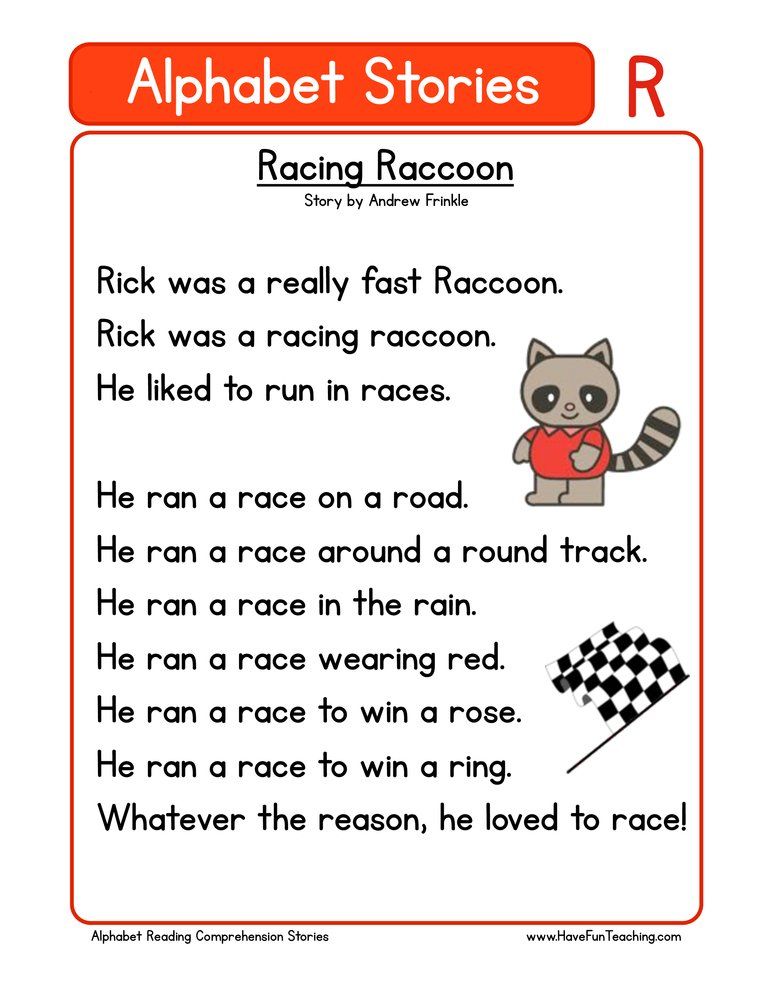List of long vowel words with silent e
Silent E Words (Free Printables) Plus Ways To Teach Silent E
Oh, those pesky Silent E words. They’re one of the first big challenges for emergent readers. Whether you call it Silent E, Magic E, Sneaky E, or Super E, an E at the end of the word changes things in so many ways. It can affect pronunciation as well as meaning and even add another syllable to a word. Mastering words with Silent E takes time and practice, so use our free printables with your students as you try some of the activities below.
Silent E Word List
These free Silent E Words printables include common three-letter words, four-letter words, and longer words with a Silent E.
ADVERTISEMENT
Three-Letter Silent E Words
ace, age, ale, ape, ate, bye, cue, die, doe, due, dye, eke, eve, eye, foe, ice, lie, lye, owe, pie, roe, rye, sue, toe, use, woe
Long A Four-Letter Words
babe, bade, bake, bale, bare, cage, cake, came, cane, cape, care, case, cave, dare, date, daze, face, fade, fate, fake, fame, fare, fate, faze, gale, gate, gave, gaze, hare, hate, have, haze, kale, lace, lake, lame, lane, late, made, make, male, mane, mare, mate, maze, name, nape, pace, page, pale, pane, pare, race, rage, rake, rare, rate, rave, raze, safe, sage, sale, same, sane, save, take, tale, tame, tape, vane, vase, wade, wage, wake, wane, ware, wave
Long E Four-Letter Words
cede, here, meme, mere, mete, we’re, we’ve
(Note that there just aren’t very many silent E words with a long E sound. )
Long I Four Letter Words
bike, bile, bite, dice, dime, dine, dire, dive, fife, file, fine, fire, hide, hike, hire, hive, jive, kite, lice, life, like, lime, line, live, mice, mike, mile, mine, mire, nice, nine, pile, pine, rice, ride, ripe, side, site, tide, tile, time, tine, tire, vile, vine, vise, wide, wile, wipe, wire, wise
Long O Four Letter Words
bone, bore, code, coke, cone, cope, core, cove, doze, fore, hole, home, hone, hope, hose, joke, lobe, lode, lone, lore, mode, mole, mope, mote, node, nope, note, poke, pole, pope, pore, robe, rode, role, rope, rose, rove, sole, tore, tote, vote, woke, wore, wove
Long U Four Letter Words
cube, cure, cute, dude, duke, dune, fume, huge, lure, mule, muse, mute, nuke, pure, rude, rule, sure, tube
Longer Silent E Words
adore, blame, blare, brave, bride, calculate, close, clothe, crane, crime, cupcake, dance, drive, evoke, extreme, fable, fleece, fluke, flute, frame, gauge, goose, grace, grate, grave, grove, handle, hence, loose, moose, orate, plane, scene, skate, slate, spite, state, stove, stripe, tadpole, whine, wrote
Grab Our Free Silent “E” Printable!
Silent E Rules for Pronunciation
Source: Latoya Burrows on Pinterest
Silent E is known for “making the vowel say its name,” and that’s one of its most important jobs.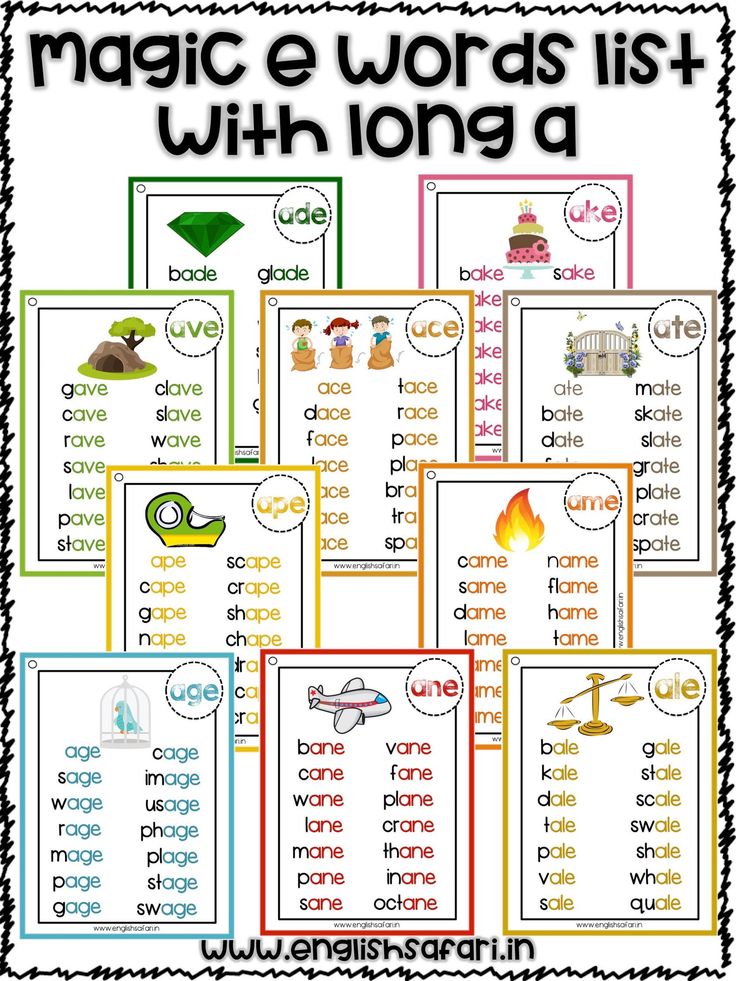 But that final E has other pronunciation effects on words too. Here are some to teach your students.
But that final E has other pronunciation effects on words too. Here are some to teach your students.
1. Silent E makes the vowel before it long
Examples: Think CVCe words like cap vs. cape or mop vs. mope. There are also a handful of 3-letter silent e words where it changes pronunciation, like do vs. doe.
2. It makes C and G soft
Examples: Dance, wage, or stage
3. Silent E makes TH soft
Examples: Bathe, soothe, or lithe
4. When it appears with an L at the end, it adds a syllable to words
Examples: Bundle, simple, or handle
See more ways that Silent E can affect words at All About Learning Press.
Activities and Ideas for Teaching Silent E
These Silent E activities, songs, and videos will help your students master this challenging concept.
Vintage Silent E
Here’s a throwback to share with your kids! Tom Lehrer wrote this one back in the 1970s for The Electric Company, but the message (and the song) are just as relevant today.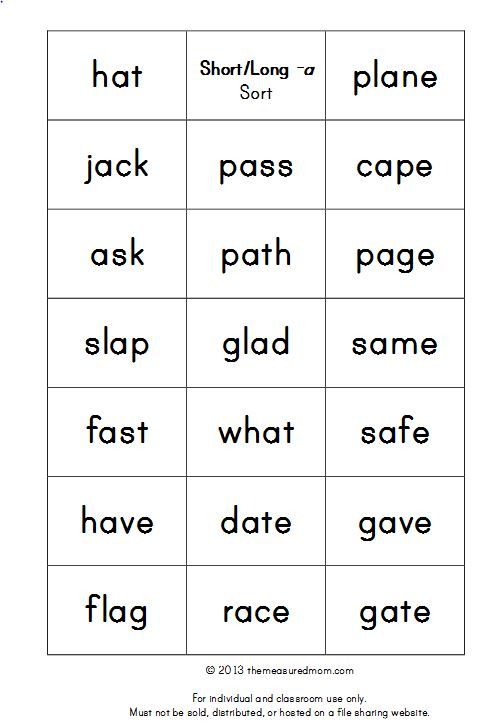
Silent E is a Ninja
For a more updated take on Silent E videos, try this clip with Lin-Manuel Miranda, also from The Electric Company. Silent E is definitely sneaky!
The Mighty Silent E Read-aloud
This read-aloud tells the story of Silent E, as he learns just how special he truly is.
The Bossy E
Here’s one more Silent E video, this one starring the Bossy E!
Wave the Magic E wand
Play off the idea of “Magic E” with these fun Silent E wands! Add it to the end of CVC words and watch the magic happen.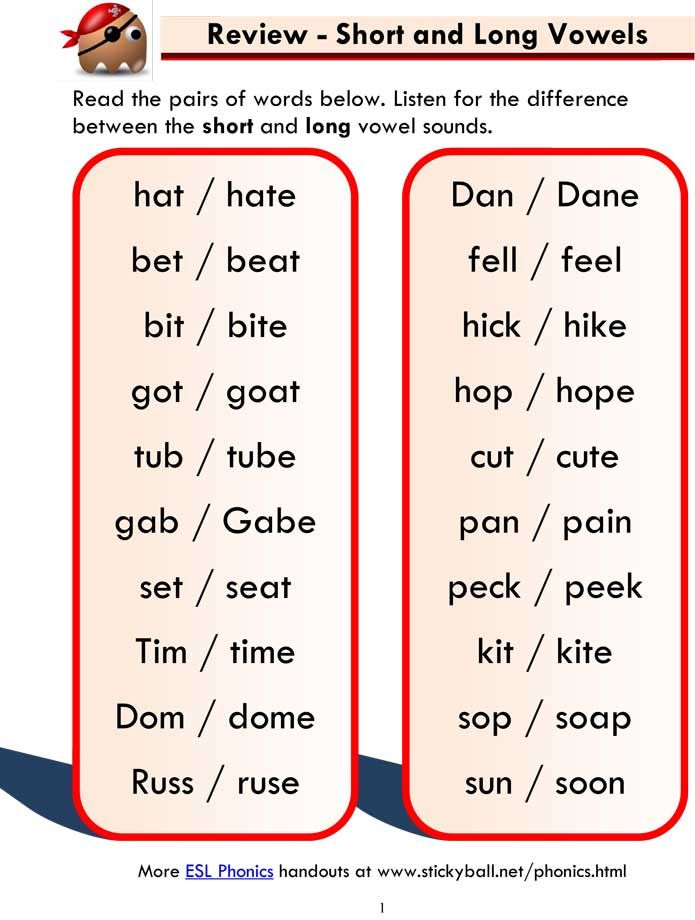
Learn more: Playdough to Plato
Go on a word hunt
Send kids on a word hunt through a book, magazine, or newspaper to find Silent E words. Don’t forget to keep an eye out for the “oddballs” that don’t fit the rules.
Learn more: The Measured Mom
Hang a Sneaky E anchor chart
A colorful chart like this one will look terrific hanging in your classroom, and it will help students remember how the sneaky Silent E works.
Learn more: Emily Education
Add a sticky note
This is such a clever anchor chart! Add a sticky note Silent E to each word to see how the sound changes (and sometimes makes a whole new word).
Source: @thekinderheartedclassroom
Make Silent E flip strips
These smart strips demonstrate the power of a Magic E. Have kids write their own on paper strips, or buy a set from Tickled Pink in Primary.
Line up and add an E
Get students up and moving with this fun activity. Make your E sparkly for extra impact!
Make your E sparkly for extra impact!
Grab Our Free Silent “E” Printable!
Learn more: For the Love of First Grade
What are your favorite tips for teaching silent e words? Come share in the WeAreTeachers HELPLINE group on Facebook.
Plus, what are sight words, and how do I teach them?
English Words that End with a Silent E
DESCRIPTION
silent e word love on paper cups
SOURCE
Yothin Sanchai / EyeEm / Getty Images
Finding English words that end with a silent "e" is extremely easy because there are hundreds of them. Think of all of those four-letter words that end in an "e." Chances are, that is a silent "e." Keep reading to find a thorough list of English words that end with a silent “e,” as well as an explanation about how that “e” changes each word’s pronunciation.
Silent E Words List
Words have a silent “e” for several reasons. In most cases, the silent “e” changes the first vowel sound of the word.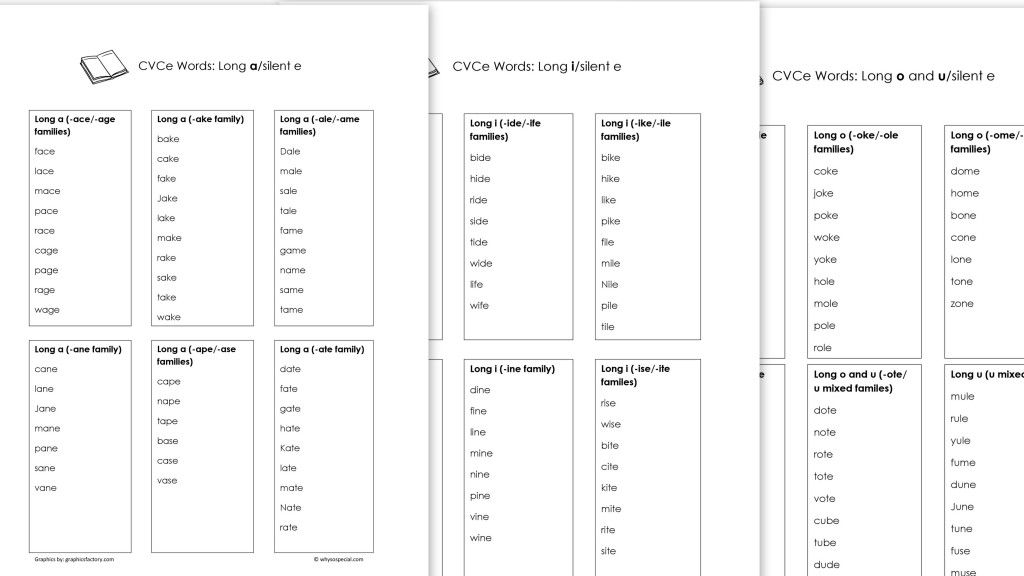 Take a look at these silent “e” words to see how their pronunciation changes when you take off that final “e.” You can also download and print the PDF below to keep the lists on hand.
Take a look at these silent “e” words to see how their pronunciation changes when you take off that final “e.” You can also download and print the PDF below to keep the lists on hand.
Three-Letter Words That End in Silent E
The silent “e” is powerful enough to turn do into doe, and at into ate. See how many more three-letter words need a silent “e” to ensure that they are pronounced correctly.
ace | age | ale |
ape | are | ate |
awe | axe | bye |
cue | die | doe |
due | dye | eke |
eve | eye | ewe |
foe | ice | lie |
lye | owe | pie |
roe | rye | sue |
toe | use | woe |
Four-Letter Words That End in Silent E
There are many four-letter words that end in a silent “e. ” Most of them are CVC words (consonant-vowel-consonant) that, when combined with a silent “e,” become different words with different pronunciations. This list of four-letter silent “e” words are common in the English language.
” Most of them are CVC words (consonant-vowel-consonant) that, when combined with a silent “e,” become different words with different pronunciations. This list of four-letter silent “e” words are common in the English language.
bake | bare | bate |
bite | cage | cake |
came | cane | case |
cave | code | come |
cove | cube | cute |
dame | date | dime |
dine | dove | doze |
dude | fame | fare |
fate | game | gape |
gate | gave | give |
hate | hope | hype |
jove | jute | kite |
lace | lake | late |
lime | lose | love |
mace | make | mane |
mare | mate | maze |
mete | mime | mite |
mode | mope | mute |
name | nape | nose |
note | pace | page |
pane | pike | pine |
pipe | pope | ride |
ripe | rite | robe |
rode | rose | rune |
same | shoe | take |
tame | tape | time |
type | wine | wise |
Five-Letter Words That End in Silent E
The list of five-letter words is almost as long as the four-letter words.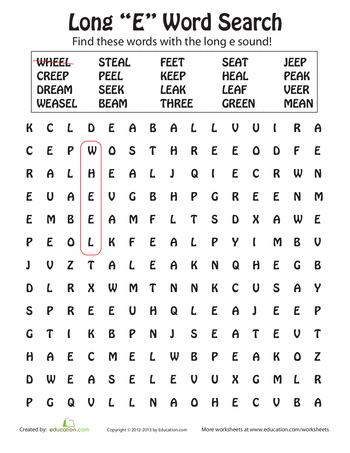 Many of these words include consonant blends, such as angle and spoke, and vowel teams such as biome and cause.
Many of these words include consonant blends, such as angle and spoke, and vowel teams such as biome and cause.
abase | abide | abode |
above | abuse | acute |
adore | anime | bible |
blade | blame | blare |
brave | bride | close |
crane | crime | curve |
drive | evoke | fluke |
flume | flute | frame |
gauge | goose | grace |
grate | grave | gripe |
grove | hence | knave |
loose | mauve | moose |
niece | orate | pause |
peace | plane | scene |
skate | slate | spite |
state | stove | tease |
trite | whine | wrote |
Longer Words That End in Silent E
Once you start looking for silent “e” words, you’ll find them everywhere! These longer words all have a silent “e” that changes the way you’d pronounce them.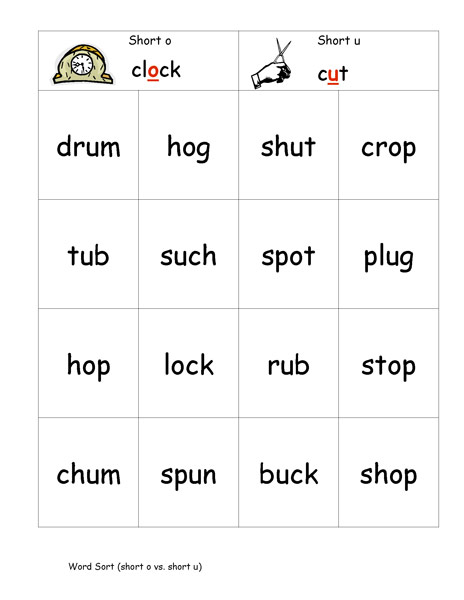
calculate | clothe | conceive |
courage | expense | extreme |
fleece | grease | handle |
perceive | please | preserve |
receive | reserve | squeeze |
stripe | turpentine | zygote |
How the Silent E Works
Now that you have reviewed a number of the words in the English language ending with the silent "e," let’s review the letter’s purpose. The silent “e” might not make a sound, but it does serve specific purposes. A silent “e” at the end of a word changes its pronunciation in the following ways.
- A silent "e" can make the short vowel before it into a long vowel. For example, in the words code and wine the "e" prevents them from being cod and win.
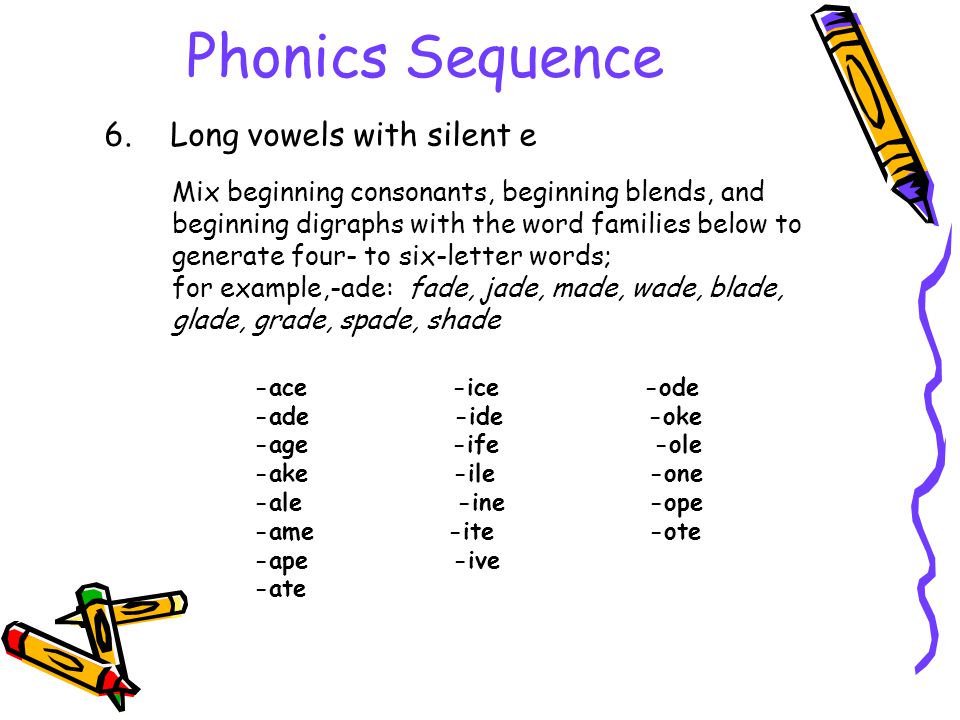 The "e" allows them to make the long sound and say their names. (This is why the silent “e” is also known as the bossy “e.”)
The "e" allows them to make the long sound and say their names. (This is why the silent “e” is also known as the bossy “e.”)
- The silent "e" can also make certain harsher sounding vowels sound softer. For example, in the words grace and age, we do not get the harsh sounds of "c" and "g" as you would in the words cat and good.
However, there are a few instances where a silent “e” doesn’t affect the way you say a word at all. If you’ve ever been confused about a mystery “e” at the end of the word, it may have fallen into these situations.
- In words, every syllable needs to have a vowel in it. Without the silent "e," words like "handle" would violate a basic rule of English grammar.
- English words don’t typically end in “v,” so words like perceive and above have an “e” that don’t affect their pronunciation. This rule applies to words that end in “u” as well, such as cue and true.
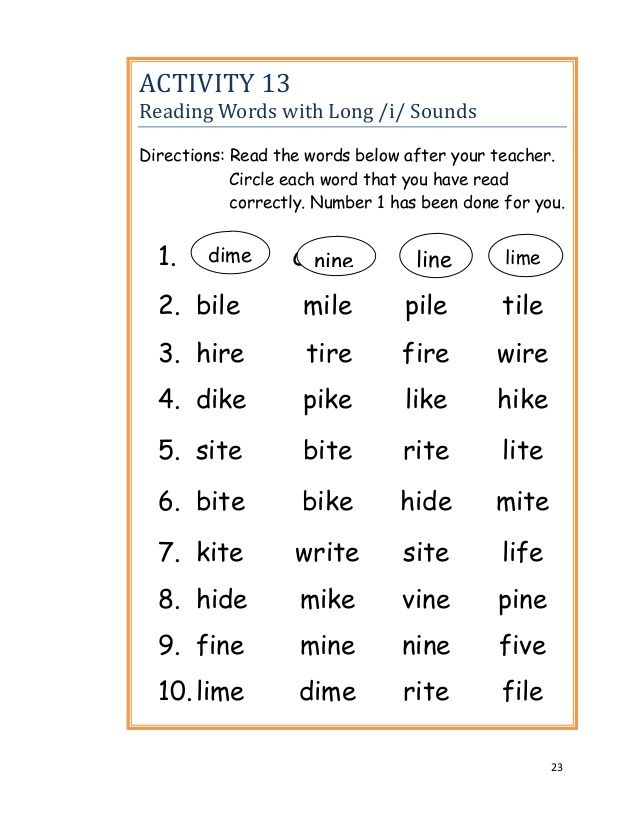
- The silent "e" also prevents singular words from looking like plural words. Look at the word moose. If there were no "e" there, you would just have moos, which looks like the plural form of moo.
- Sometimes the silent “e” has no effect on pronunciation at all. This is true in the three-letter words ore and are.
Silent letter e word list
Click to View & DownloadPronouncing Tricky Words Correctly
Once you understand the rules of using a silent “e,” you can pronounce hundreds of words correctly. However, it’s just one trick of many in the English language that can help you with proper pronunciation. Explore more silent letter words like words with a silent "t." Then, take a look at 100 commonly mispronounced words to clarify word pronunciation and spelling.
E, U, B, C, D
My friend, who is fluent in German, hates English for its reading rules, and especially for 'silent letters' - silent letters that are written but not read.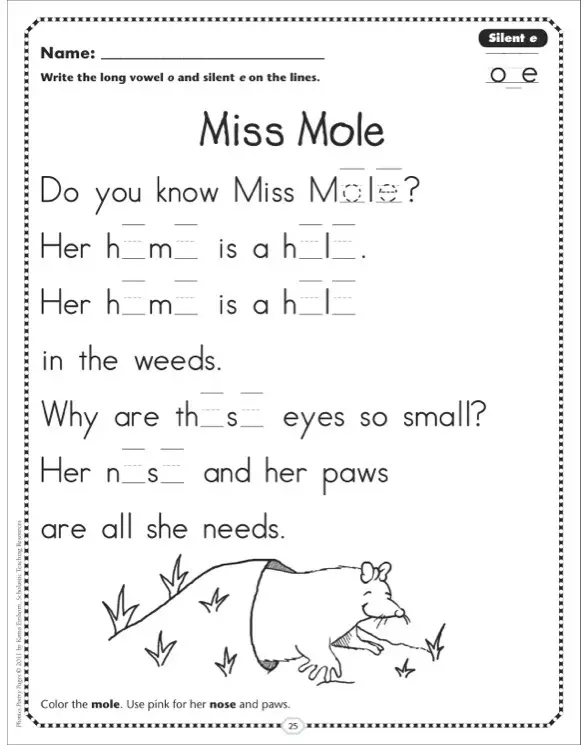 “It’s simple in German,” she says. “As it is written, so it is pronounced. No surprises."
“It’s simple in German,” she says. “As it is written, so it is pronounced. No surprises."
Indeed, in English there are ten exceptions to one rule, and many English learners note that one of the most difficult aspects is learning to read and pronounce words correctly.
Over the 10 years of teaching, I have repeatedly encountered a situation where the incorrect pronunciation of individual words with dumb letters turned into a fossilized error for many - a habit error that was not explained and corrected in time, and after repeated repetitions it firmly established itself in speech.
Examples of typical fossilized errors with silent letters: the pronunciation of the letter H in the word hour, the letter B in the words comb, climb and doubt, the letter L in the word calm and many others.
What is remarkable: silent letters are often found in the pronunciation of short and simple-looking words. Most learners don't bother too much, don't open the dictionary and check the transcription and, as a result, remember the word incorrectly.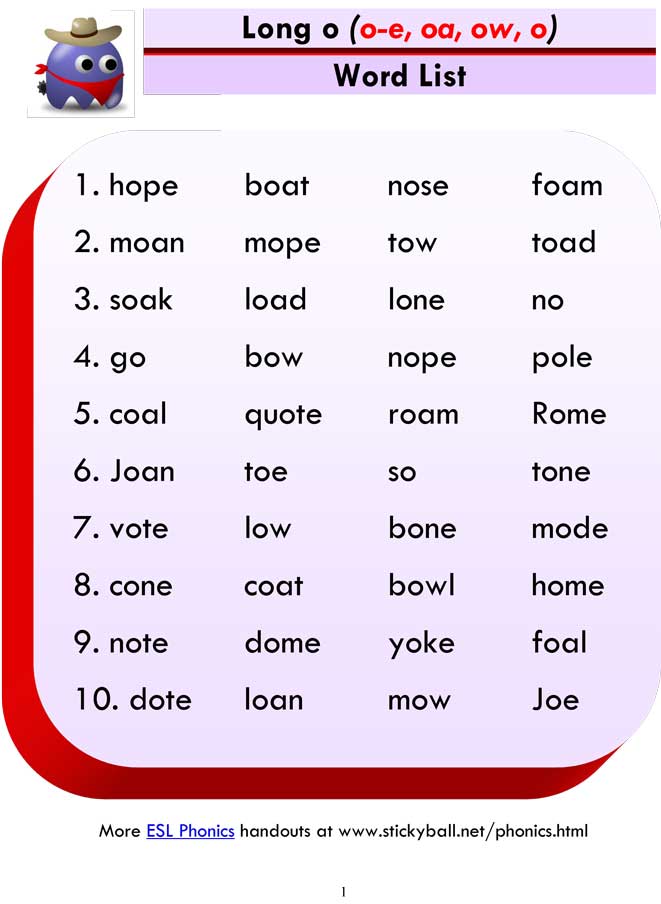
Silent vowels (Silent E, Silent U) and silent consonants (Silent B, Silent C, Silent D, Silent H, Silent G, Silent L, Silent N, Silent P, Silent S, Silent T, Silent W.
I understand my friend who suffers from silent letters. There is no single pronunciation rule for everyone: you need to memorize combinations and individual exception words. For this reason, the behavior of silent letters in English words, at first glance, may seem unpredictable. But, if you look closely and understand, you will notice that each has its own patterns and combinations that make them dumb. In this lesson, I want to tell you more about silent letters and the principles of their pronunciation.
A word of caution before we start: in my pronunciation lessons, I don't delve into the mystical depths of theoretical phonetics, because I don't think it's the most necessary material for filling the head of an ordinary person who wants to speak English.
I am not trying to explain to you the mysteries of articulation and paint the positions of your teeth, lips and tongues - this is best learned through audio, video or classes with teachers.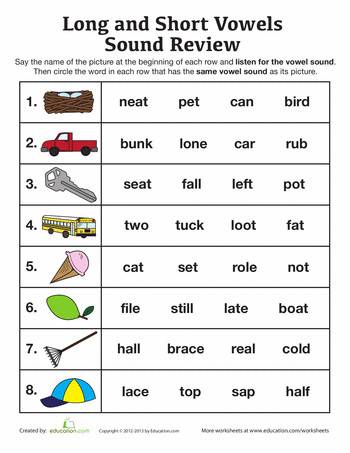 In the ENGINFORM blog, I convey things in a simple, maximally non-theoretical language for people without a philological education who master English on their own.
In the ENGINFORM blog, I convey things in a simple, maximally non-theoretical language for people without a philological education who master English on their own.
Let's move on to "silent letters".
Silent vowels
Silent E
The letter E was not always silent. Sources claim that it lost its sound in the 11th century. In modern English, we almost never read the E at the end of a word. Many verbs, nouns, adjectives end in silent E:
- take /teɪk/
- cake /keɪk/
- little /ˈlɪt(ə)l/
- late /leit/
- life /laif/
- more /mo:r/
- blue /blu:/
This list of examples, as you understand, can be continued indefinitely, because there are really a lot of words with E at the end.
But one should not assume that if the letter is not pronounced, then it is absolutely meaningless. E at the end of a word serves to make the preceding syllable open, but loses its sound itself.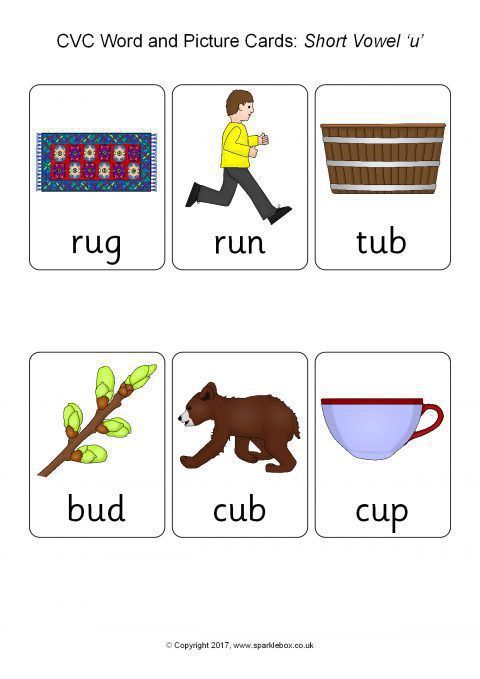 Compare pronunciation:
Compare pronunciation:
- hat /hat/ – hate /heɪt/
- tap /tap/ -tape /teɪp/
- at /at/ –ate /eɪt/
- mat /mat/ – mate /meɪt/
- sit /sɪt/ – site /sʌɪt/
If there were no E at the end, then, according to the rules of reading the English language, the words would be read absolutely differently! This is rarely explained in textbooks, but most of us automatically understand the principle from childhood: E at the end of English words is not pronounced.
In English there are a few foreign words you need to remember because the E is at the end of these words:
Resumé /'rezjuːmeɪ/ – summary. The word is usually pronounced with a French accent. By the way, in the blog you can find out what is the difference between Resumé and Curriculum Vitae.
Forte /fɔːteɪ/ – loud. An Italian musical term that has another meaning: ‘the strong side in a person’.
Remember that when forming the plural form (when we add the ending S), when forming the third person singular in Present Simple (ending S), the "ing" form and the second and third forms of regular verbs (ending ED) silent E at the end of word drops .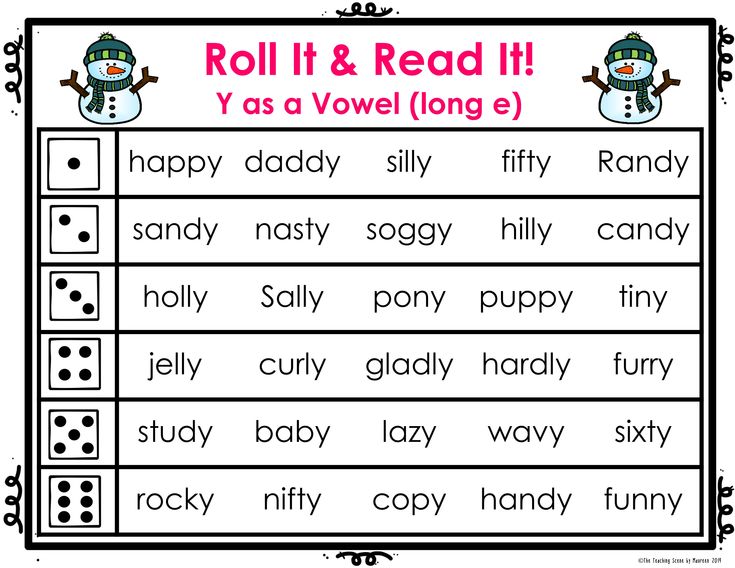 I recommend that you re-read the articles later to brush up on the rules for forming different forms and adding endings.
I recommend that you re-read the articles later to brush up on the rules for forming different forms and adding endings.
Silent U
The second vowel that can lose its sound in some words is the letter U. It is not pronounced when it comes after G before a vowel:
- guess /ɡɛs/ – guess, guess
- guidance /ˈɡʌɪd(ə)ns/ - guidance
- guitar /ɡɪˈtɑː/ - guitar
- guest /ɡɛst/ - guest
- guild /ɡɪld/ – guild, union
- guard /ɡɑːd/ - guard, guard
Silent consonants
Silent B
Many people pronounce the sound B in combination with MB at the end of a word. Please remember that in this combination only M is read, and B is a dumb letter:
- climb / klaim / - climb
- limb /lim/ - limb
- bomb /bom/ - bomb
- comb /koum/ - comb
- tomb /tu:m/ - headstone, tomb
- numb /nəm/ - dumb
- plumber /'pləmər/ – plumber
- thumb /θəm/ - thumb
The letter B is also not readable in the combination BT.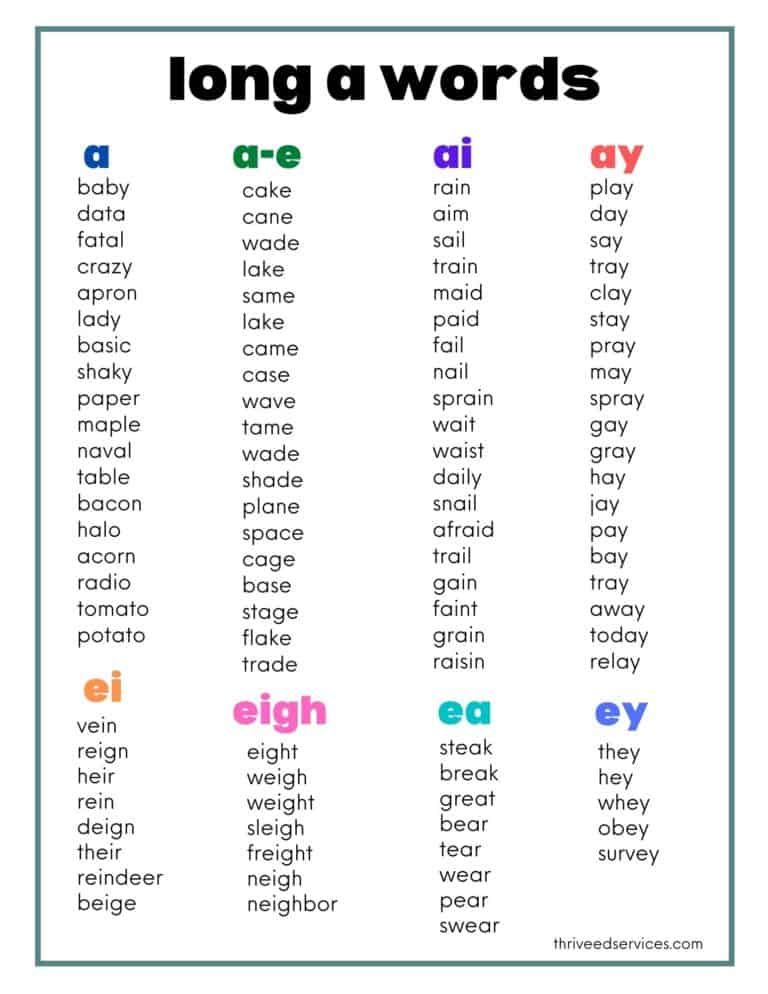 There are much fewer words with this combination:
There are much fewer words with this combination:
- debt / det / - debt
- doubt /daut/
- subtle /'sətl/ – implicit
Remember that in derivative words, silent letters also most often retain their “dumbness”:
- subtleness /ˈsʌt(ə)lnəs/ – subtlety
- undoubtedly /ʌnˈdaʊtɪdli/ – undoubtedly
- bombing /ˈbɒmɪŋ/ - to bomb
Silent C
The letter C is not pronounced in the SC combination, although one would like to pronounce it like /k/ in the word muscle!
- muscle /ˈmʌs(ə)l/ - muscle, muscle
- scissors /ˈsɪzəz/ – scissors
- ascent /əˈsɛnt/ – rise, promotion
- miscellaneous /ˌmɪsəˈleɪnɪəs/ – different, heterogeneous
- fascinate /ˈfasɪneɪt/ – to captivate, arouse interest
- scenario /sɪˈnɑːrɪəʊ/ - scenario, action plan
There are exceptions to this rule - these are words of Greek origin, medical or scientific terms in which C reads:
- sclera /ˈsklɪərə/ - sclera
- sclerosis /skləˈrəʊsɪs/ – sclerosis
- skeptic /ˈskɛptɪk/ – skeptic
C is also not pronounced before the letter Q:
- acquaintance /əˈkweɪnt(ə)ns/
- acquiesce /ˌakwɪˈɛs/ – reluctant to agree
- acquit /əˈkwɪt/ – to justify
Mark yourself a few exception words where C does not sound (and at first glance - ordinary adequate words!):
- Connecticut /kə'netikət/ - Connecticut
- to indict /in'dait/
- indictment /in'daitmənt/ - indictment
- victuals /'vitlz/ - provisions, foodstuffs
- to victual /'vitl/
Silent D:
Every language tends to simplify.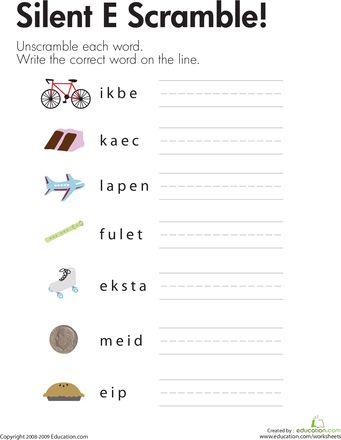 It is difficult to pronounce several consonants in a row, so D is not pronounced in many words before other consonants:
It is difficult to pronounce several consonants in a row, so D is not pronounced in many words before other consonants:
- handkerchief /ˈhaŋkətʃɪf/ – handkerchief
- Wednesday /ˈwɛnzdeɪ/ - Wednesday
- sandwich /ˈsan(d)wɪtʃ/ – sandwich
- handsome /ˈhans(ə)m/ – handsome
By the way, in my blog I talked in more detail about the use of the word handsome and its synonyms (beautiful, nice, good-looking and others). You may find this information useful.
If you come across a combination of DG in a word - do not break your tongue: D does not sound, and the diphthong [ʤ] is transmitted by the letter G:
- ledge /lɛdʒ/ - protrusion
- dodge /dɒdʒ/ - dodge, dodge
- grudge /ɡrʌdʒ/ – resentment, malice
- hedge /hɛdʒ/ - hedge
It is very possible that among the examples in this article you have found words that you used to pronounce incorrectly.
And you ask me what to do with them?
Tip number one for correct pronunciation - check the transcription of the word, even if the word is small and simple.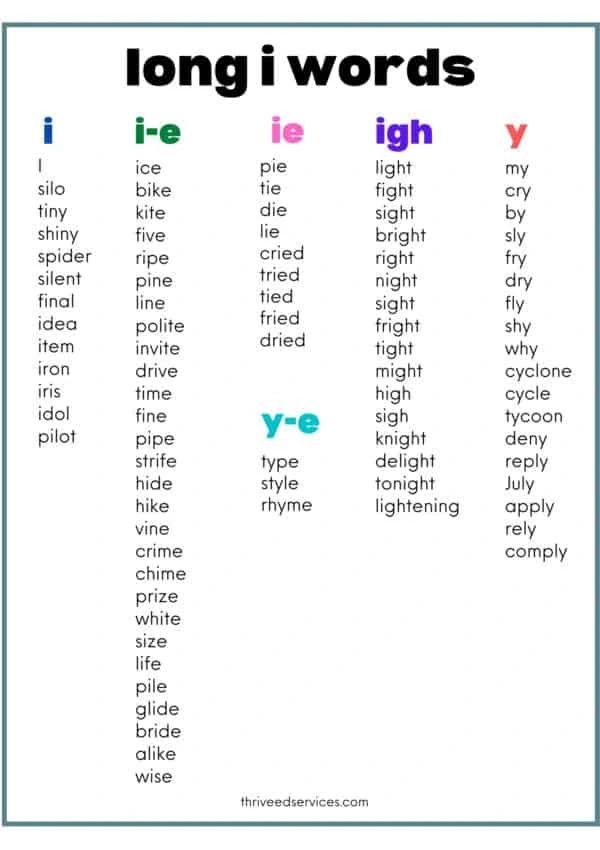 English is 50% made up of small and harmless-looking words, and by reading this material, you have seen that they are not so simple. Keep a selection of the best online dictionaries, you will definitely need it to clarify how the word you need sounds.
English is 50% made up of small and harmless-looking words, and by reading this material, you have seen that they are not so simple. Keep a selection of the best online dictionaries, you will definitely need it to clarify how the word you need sounds.
Tip number two : Listen and speak out! This is especially true for those of you who learn English primarily from textbooks and texts. Due to this "visual" study of words, you remember only how the word is spelled, and automatically pronounce all letters, even silent ones. Hear how words you know sound in songs, movies, how your teacher and native speakers pronounce them. If you notice any inconsistencies, this is an occasion to turn to the first advice or ask a specialist a question.
Third tip : some consonants can be "half" mute (that's not a special term, that's what I call them). Let me explain with an example: if you look up the transcription of the word often in the dictionary, you will see that the sound t is indicated in brackets /ˈɒf(t)ən/.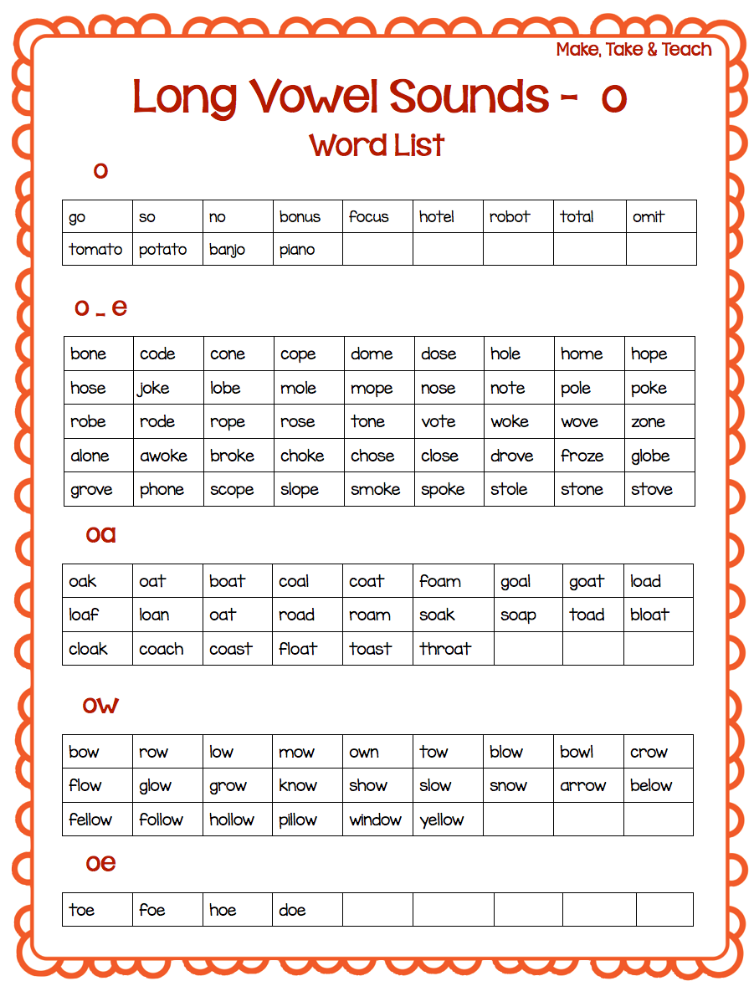 And some dictionaries, for example, Oxford Living Dictionaries, give two pronunciations: /ˈɒf(ə)n/ and /ˈɒft(ə)n/. This means that T may or may not be pronounced. At your discretion. In many words, you can find "half" letters and it is important for you to know that there are two pronunciations. How to find out? See tips number one and number two.
And some dictionaries, for example, Oxford Living Dictionaries, give two pronunciations: /ˈɒf(ə)n/ and /ˈɒft(ə)n/. This means that T may or may not be pronounced. At your discretion. In many words, you can find "half" letters and it is important for you to know that there are two pronunciations. How to find out? See tips number one and number two.
Fourth tip (optimal) : find a speaking partner who will help you with pronunciation. Ideally, this will be an experienced specialist who will monitor how you pronounce "problem words", provide you with examples of the correct pronunciation and will systematically work to eliminate your learned mistakes. Our ENGINFORM tutors are always ready to help wherever you are and will be happy to meet you for free introductory lessons via Skype.
And in the next article, we will continue to dive into the topic of “silent” letters in English and analyze when the letters H and G do not sound in English words. I hope this tutorial was helpful and cleared things up for you.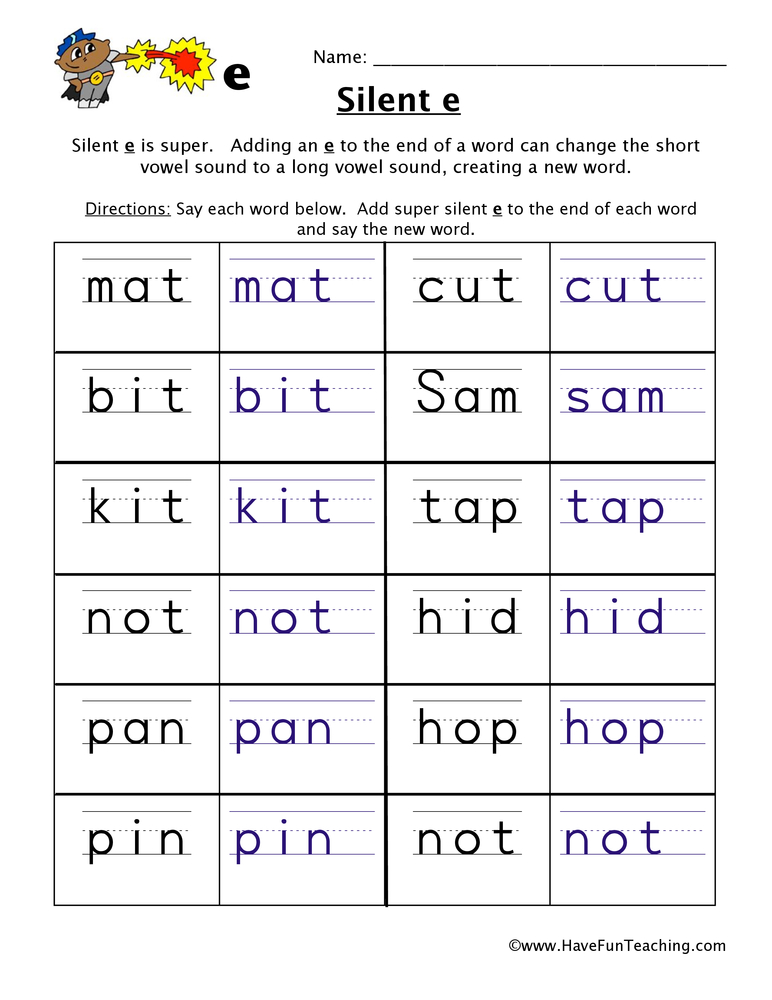 Write to me in the comments what was new for you, what words you used to pronounce incorrectly before and, of course, ask your questions!
Write to me in the comments what was new for you, what words you used to pronounce incorrectly before and, of course, ask your questions!
Did you see a mistake in the text? Select it and click on the arrow that appears or CTRL+Enter.
Rules for reading in English
WAR
All dictatorships create external enemies and repression to sit on the throne forever.
If you can't tell the truth from a clever lie, then think about laws, about freedom of speech, how often and where power has changed.
CNN News BBC News Telegram Wikipedia
The reading and pronunciation of some letters and letter combinations depends on their position in the word, the type of syllable and neighboring letters (more precisely, the sounds they represent). At first, such reading rules may seem difficult to remember, but with practice they will need to be referred to less and less.
Since the rules of reading in English can be difficult for beginners, it is always best to check new words by transcription and memorize the pronunciation by ear.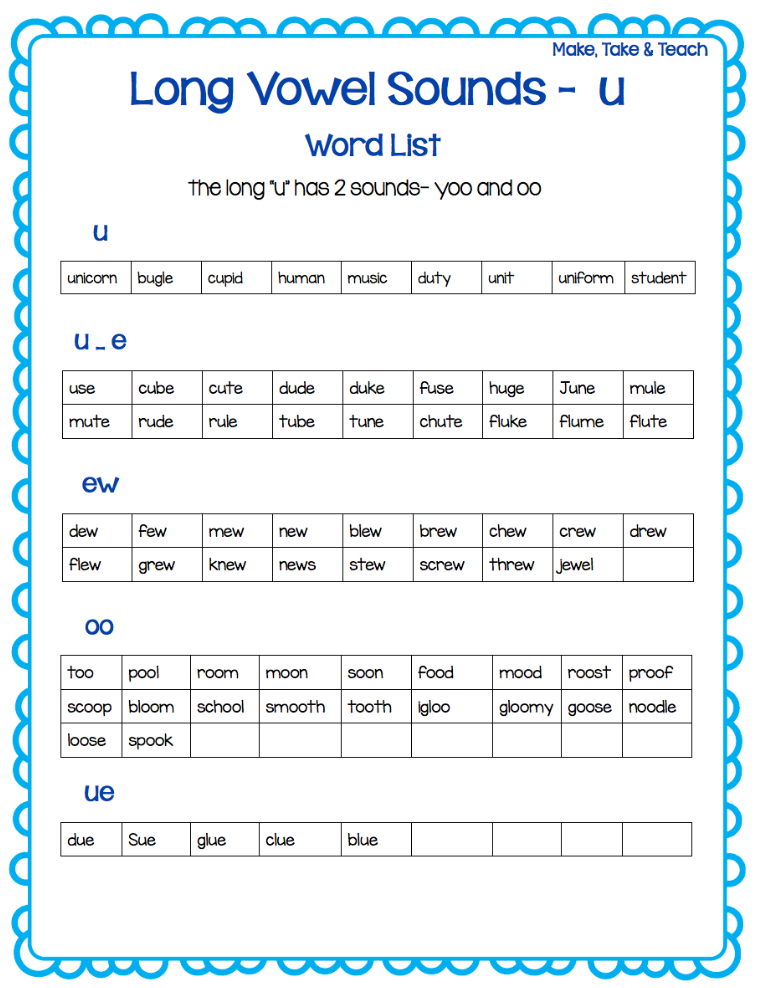
The pronunciation and designation of sounds of the English language is considered on the phonetics page.
Syllables in English
All English words, like Russian ones, can be divided into syllables. The syllable (syllable) is a sound or a combination of sounds that are pronounced together with one push of air. As a rule, the number of syllables corresponds to the number of vowels. Syllables are the building blocks of a word and affect the pronunciation of a word.
- cat (one syllable)
- take (one syllable)
- car-rot (two syllables)
- im-por-tant (three syllables)
- syl-la-ble (three syllables)
Vowels (vowels) play the main role in the formation of a syllable. In English, there are 6 letters that represent vowels: A E I O U and sometimes Y .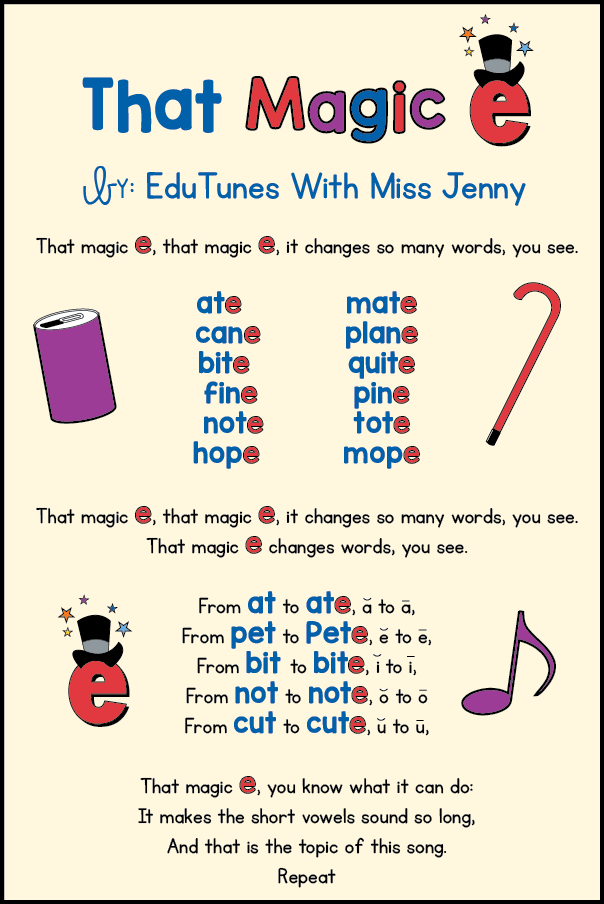 However, there are many more actual vowels, and if diphthongs are taken into account, as well as vowel sounds of English dialects, their number may exceed 20.
However, there are many more actual vowels, and if diphthongs are taken into account, as well as vowel sounds of English dialects, their number may exceed 20.
When dividing a word into syllables, it is important to take into account exactly the sounds, not the vowels, since a letter can not always convey a certain sound.
- take - two vowels, but one sound, so one syllable (final "e" is not pronounced)
- free - two vowels, but one sound and one syllable (two "e" are pronounced together in a long way)
- cheese - three vowels, but one sound and one syllable
Syllable types
Closed syllable (closed syllable) consists of one vowel and always ends in a consonant sound/sounds. A closed syllable does not necessarily begin with a consonant.
|
|
|
The open syllable (open syllable) has only one vowel at the end of the syllable.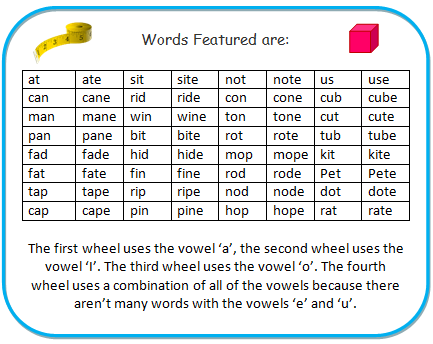 This group includes syllables that consist of only one vowel without consonants.
This group includes syllables that consist of only one vowel without consonants.
|
|
|
A syllable with a mute E (silent-e syllable) has one vowel and a mute E (not pronounced, but indicated on the letter), which comes after a consonant at the end of a syllable. Despite the fact that two vowels are written in the letter, such words are considered monosyllabic and the first vowel is read as in an open syllable (as in the alphabet).
|
|
|
A syllable with a combination of several vowels (vowel combination syllable) has combinations of two or three vowels, or a combination of a vowel and a consonant, which together give a certain sound and sound together.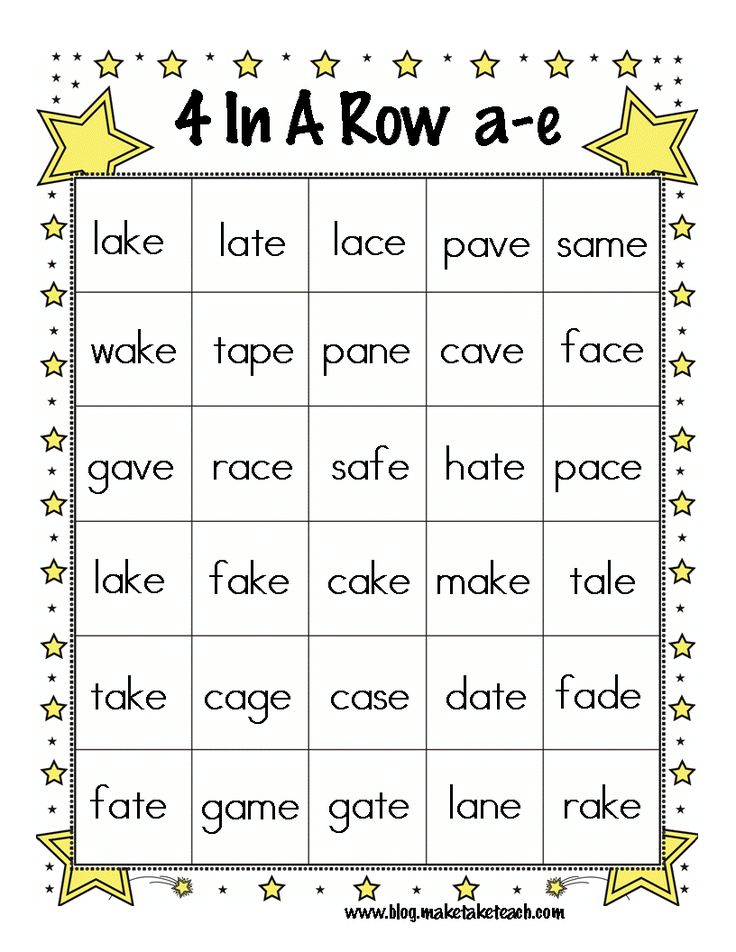
|
|
|
Vowel-9 syllables0267 R (vowel-r syllable) consist of one vowel (or combination of vowels) and the consonant R . This type also includes syllables consisting of a vowel and a consonant R with the dumb E .
|
|
|
A syllable with a combination of a consonant and LE (consonant-le syllable) is considered a separate syllable, despite the fact that it ends with a silent vowel E .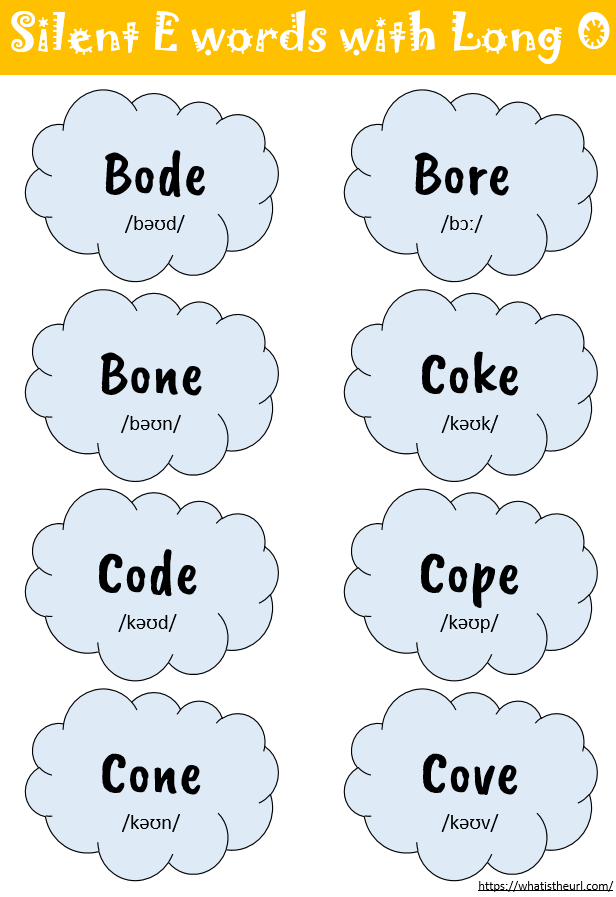 Such a combination is considered a syllable only when the combination LE is after another consonant: -ble , -cle , -dle , -fle , -tle , - gle . This syllable occurs in words consisting of two or more syllables.
Such a combination is considered a syllable only when the combination LE is after another consonant: -ble , -cle , -dle , -fle , -tle , - gle . This syllable occurs in words consisting of two or more syllables.
|
|
|
By the number of syllables, English words are divided into one-syllable , two-syllable , three-syllable and so on. The number of syllables can affect intonation and stress in a word.
|
|
|
|
Also, syllables in English are stressed and unstressed .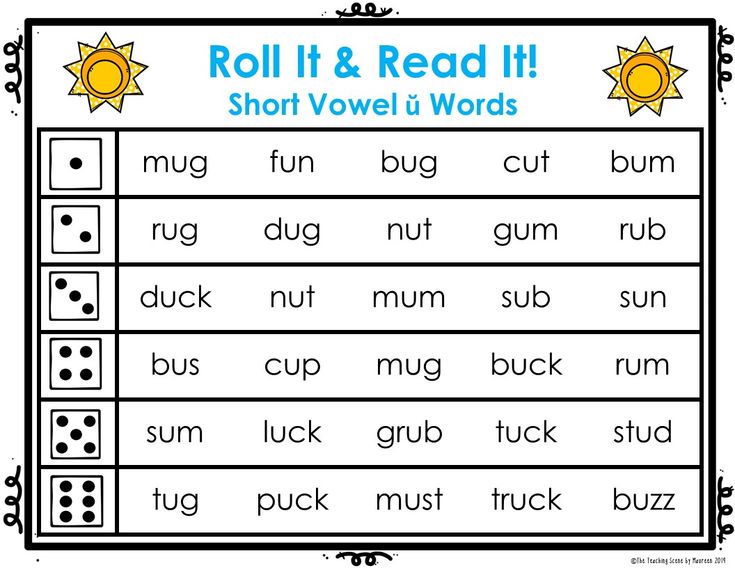 One word can have more than one stressed syllable.
One word can have more than one stressed syllable.
Stressed syllable (stressed syllable) - the syllable that is stressed is highlighted by intonation.
Unstressed syllable (unstressed syllable) - syllable without stress, pronounced shorter than stressed.
|
|
Sometimes stress on syllables can play a meaningful role.
|
|
Rules for reading vowels
English vowels are not always pronounced the way they are called in the alphabet.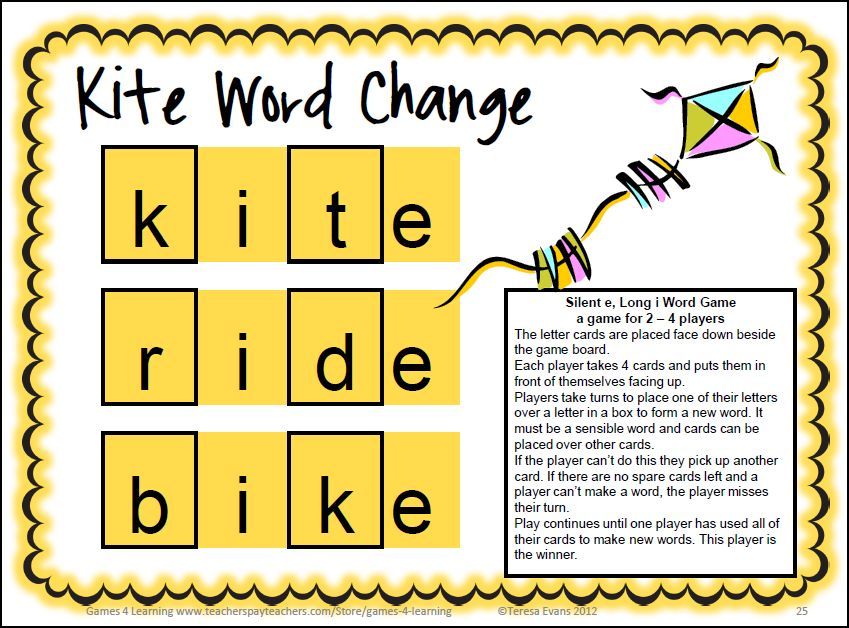 This is influenced by the position of the vowel itself in the word, that is, the type of syllable it forms. It should be noted that English words never end with the letters I and U .
This is influenced by the position of the vowel itself in the word, that is, the type of syllable it forms. It should be noted that English words never end with the letters I and U .
The letters A E I O U in an open syllable are in most cases read in accordance with their name alphabetically. In this position, they are pronounced as long vowels. It should be remembered that the final E , which comes after a consonant, is never pronounced (silent E ).
| A | [eɪ] |
|
| [ə] at the end of words |
| |
| E | [iː] |
|
| I | [aɪ] |
|
| O | [əu] |
|
| [u:] or [u] |
| |
| U | [juː] |
|
| Y | [aɪ] in an open stressed syllable |
|
| [ɪ] in an unstressed syllable |
|
In the closed syllable the letters A E I O U are mostly read as short vowels, but they sound differently than in the open syllable.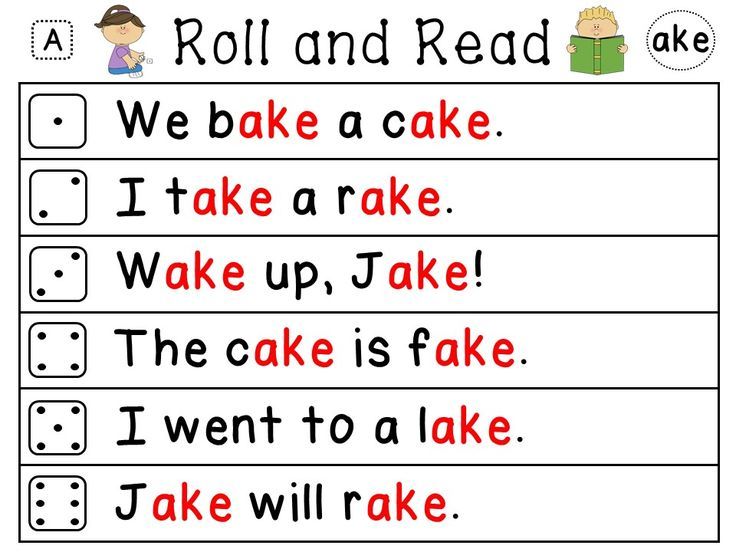
| A | [æ] |
|
| [ə] often in unstressed position |
| |
| [ɑː] often stressed |
| |
| [ɔː] before consonants l and w |
| |
| [ɔ] after w , wh , qu |
| |
| E | [e] stressed |
|
| [ə] or falls before n |
| |
| [u:] or [ju] before w |
| |
| I | [ɪ] |
|
| [aɪ] before ld , nd , gn and gh |
| |
| exception: |
| |
| O | [ɔ] |
|
| [əu] before ld and w |
| |
| [ʌ] stressed before th or n , m + another consonant |
| |
| [ə] or drops out in an unstressed syllable, often before n |
| |
| U | [ʌ] |
|
| [u] after b , f , p and before sh , l |
| |
| Y | [ɪ] |
|
The letters A E I O U before a consonant R not followed by another vowel are read as long vowels.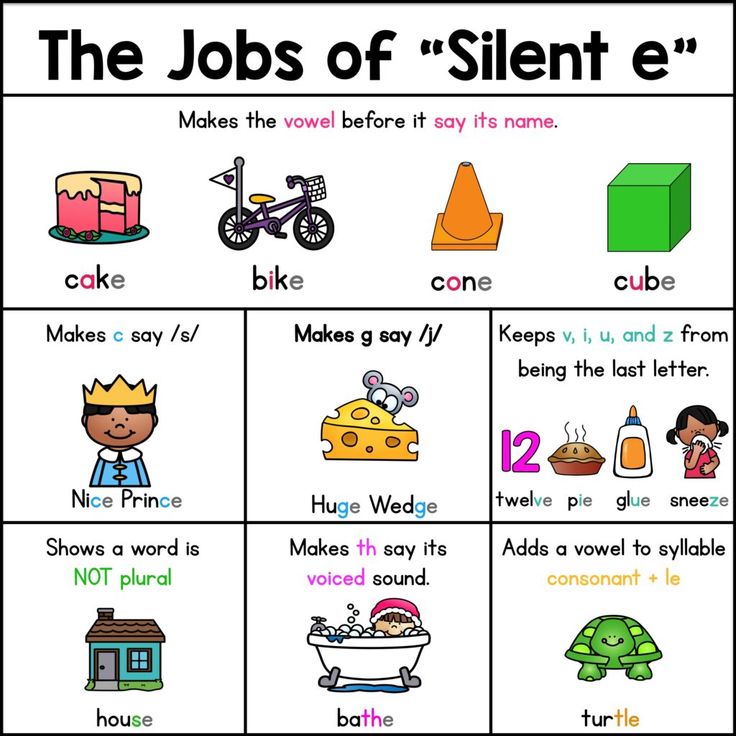 In British English, in this case, the letter R is almost unpronounceable, but can be pronounced in American English.
In British English, in this case, the letter R is almost unpronounceable, but can be pronounced in American English.
| AR | [ɑː] |
|
| ER | [ɜː] |
|
| IR, UR | [ɜː] |
|
| YR | [ər] occurs only in one word |
|
| OR | [ɔː] stressed |
|
| [ə] in an unstressed syllable, often at the end of a word |
|
When a combination of a vowel and R is followed by another vowel, such as silent E at the end of a word, the reading of the vowels changes.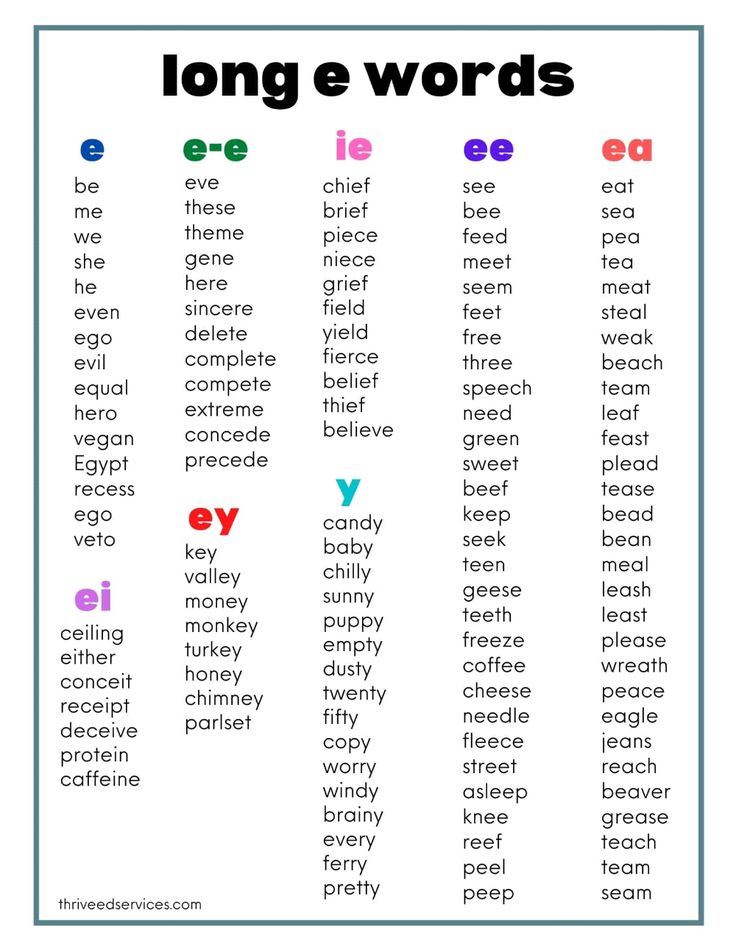 According to the norms of British English before the dumb final E consonant R is not pronounced.
According to the norms of British English before the dumb final E consonant R is not pronounced.
| A | [ɛə] |
|
| E | [ɪə] |
|
| [ɛə] |
| |
| [ɜː] (exception) |
| |
| I, Y | [aɪə] or [aɪ] |
|
| O | [ɔː] |
|
| [uə] (except for the word bury [beri]) |
|
Letter combinations of vowels in English, if they belong to one syllable, have their own reading rules, which may differ from reading vowels separately.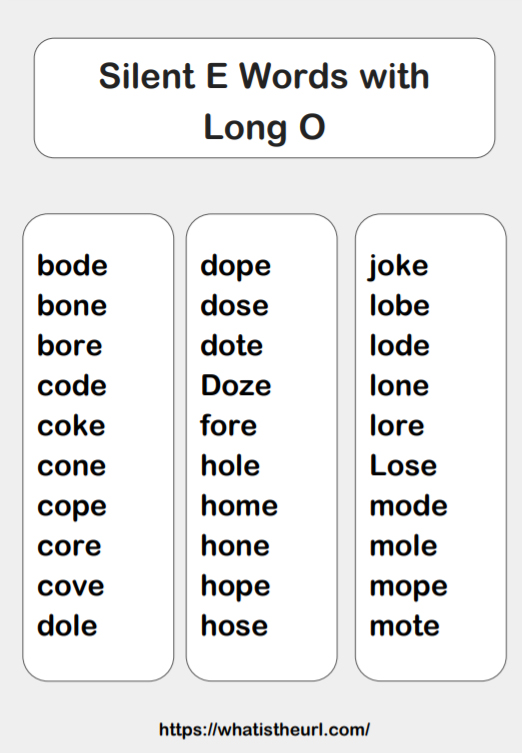 In this case, it is necessary to distinguish between the combination of letters within one syllable and the confluence of these letters at the junction of different syllables, since the reading of the word depends on this.
In this case, it is necessary to distinguish between the combination of letters within one syllable and the confluence of these letters at the junction of different syllables, since the reading of the word depends on this.
| AI, AY | [eɪ] |
|
| [ɛə] before r (combinations air and also aer ) |
| |
| AU | [ɔː] |
|
| EA | [iː] |
|
| exceptions: |
| |
| [e] before d , th , lth , sure , sant |
| |
| exception: |
| |
| EAR | [ɪə] in most cases |
|
| [ɛə] |
| |
| [ɜː] ear + consonant |
| |
| EE | [iː] |
|
| [ɪə] combined eer |
| |
| EI, EY | [eɪ] in stressed syllable |
|
| [iː], [i] unstressed syllable or stressed before silent « E » |
| |
| EU, EAU | [ju] or [ju:] |
|
| [juə] or [ʊə] combined eur |
| |
| [aɪ] at the end of monosyllabic words or before the ending -s , -d |
| |
| [iː] |
| |
| IO | [jə] or [iə] (mostly together with the consonant n - ion ) |
|
| [ə] or barely pronounced before n after c , g , s , t , sh , ch 9034 |
| |
| OA | [əu] |
|
| [ɔː] before r |
| |
| OE | [əu] |
|
| OI, OY | [ɔɪ] |
|
| OO | [uː] or [u] in a closed syllable |
|
| [ɔː] before r |
| |
| OU | [au] in stressed syllable |
|
| [ə] in an unstressed syllable |
| |
| [ɔː] before ght |
|
Rules for reading consonants
The most common rules when consonants are pronounced differently than they are called in the alphabet.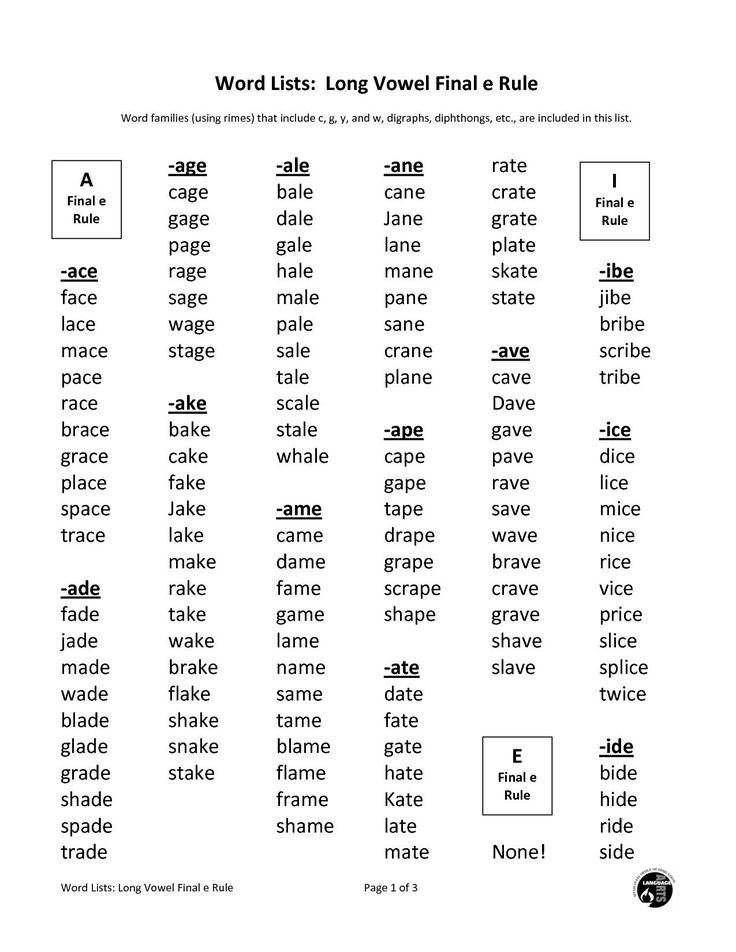

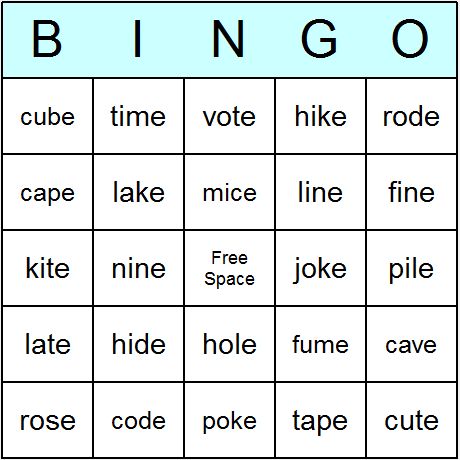 rəl]
rəl] 
